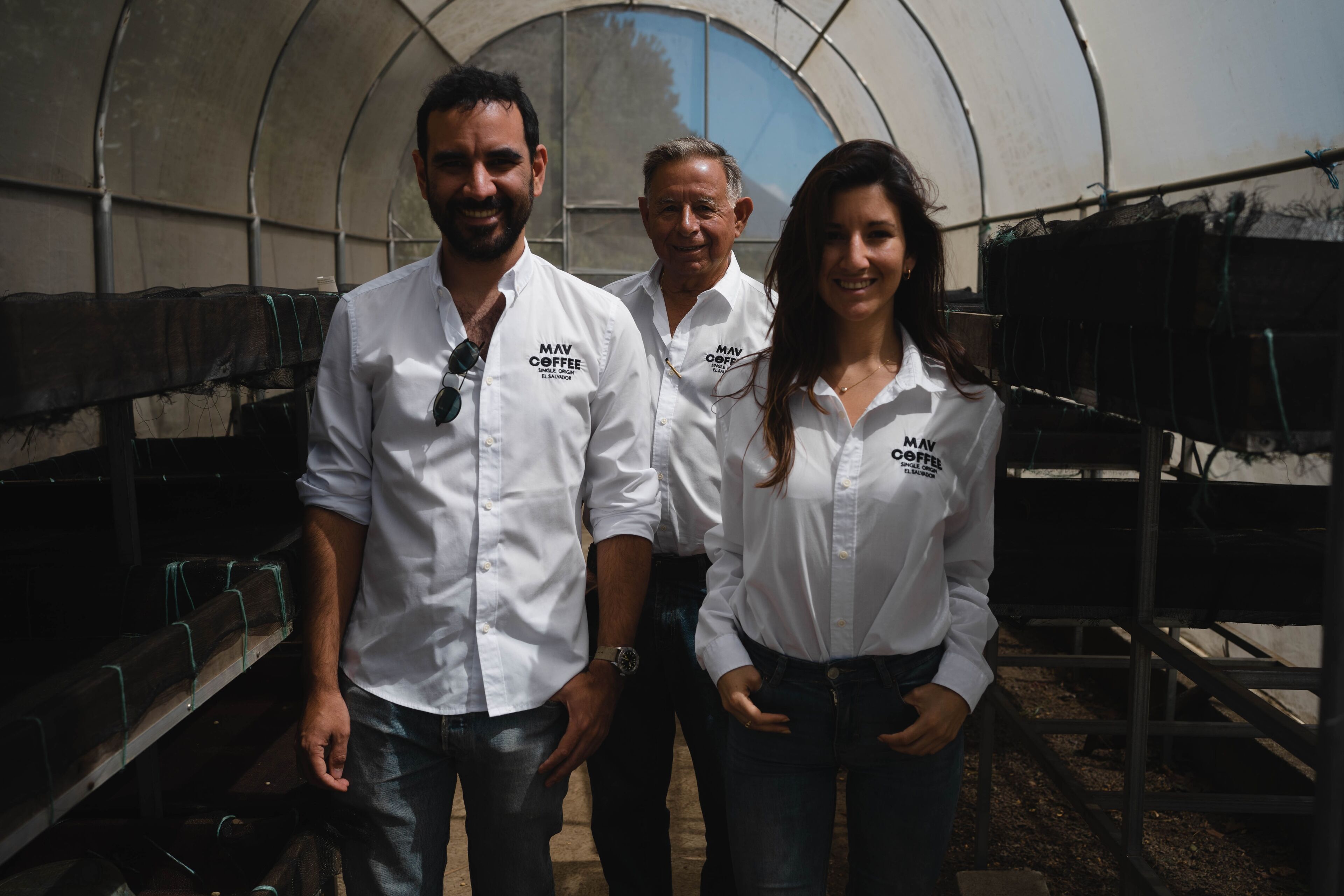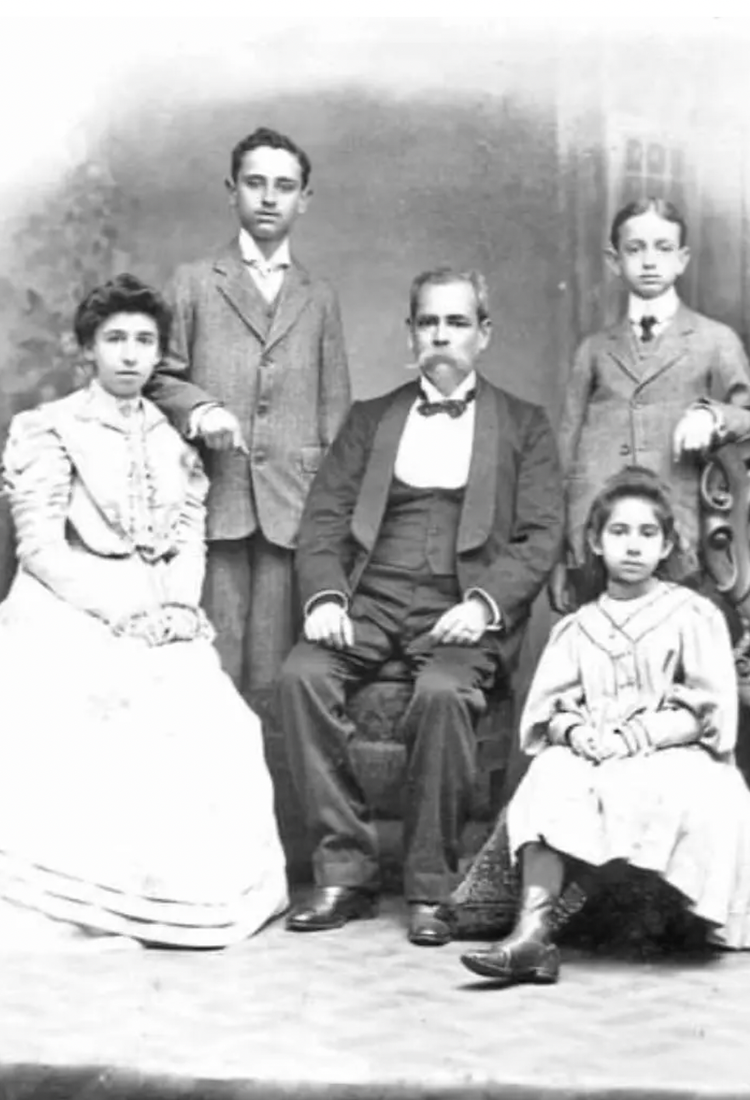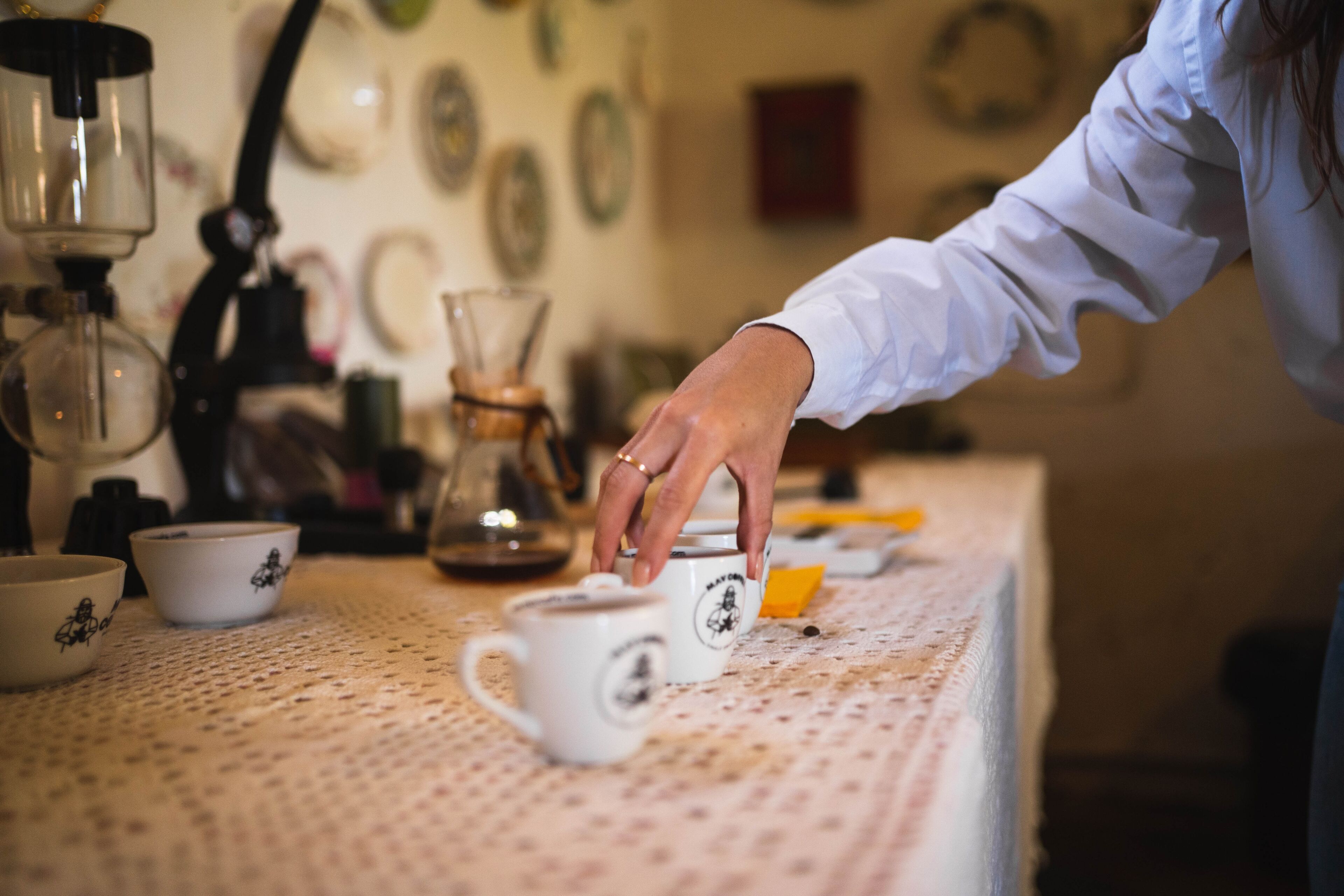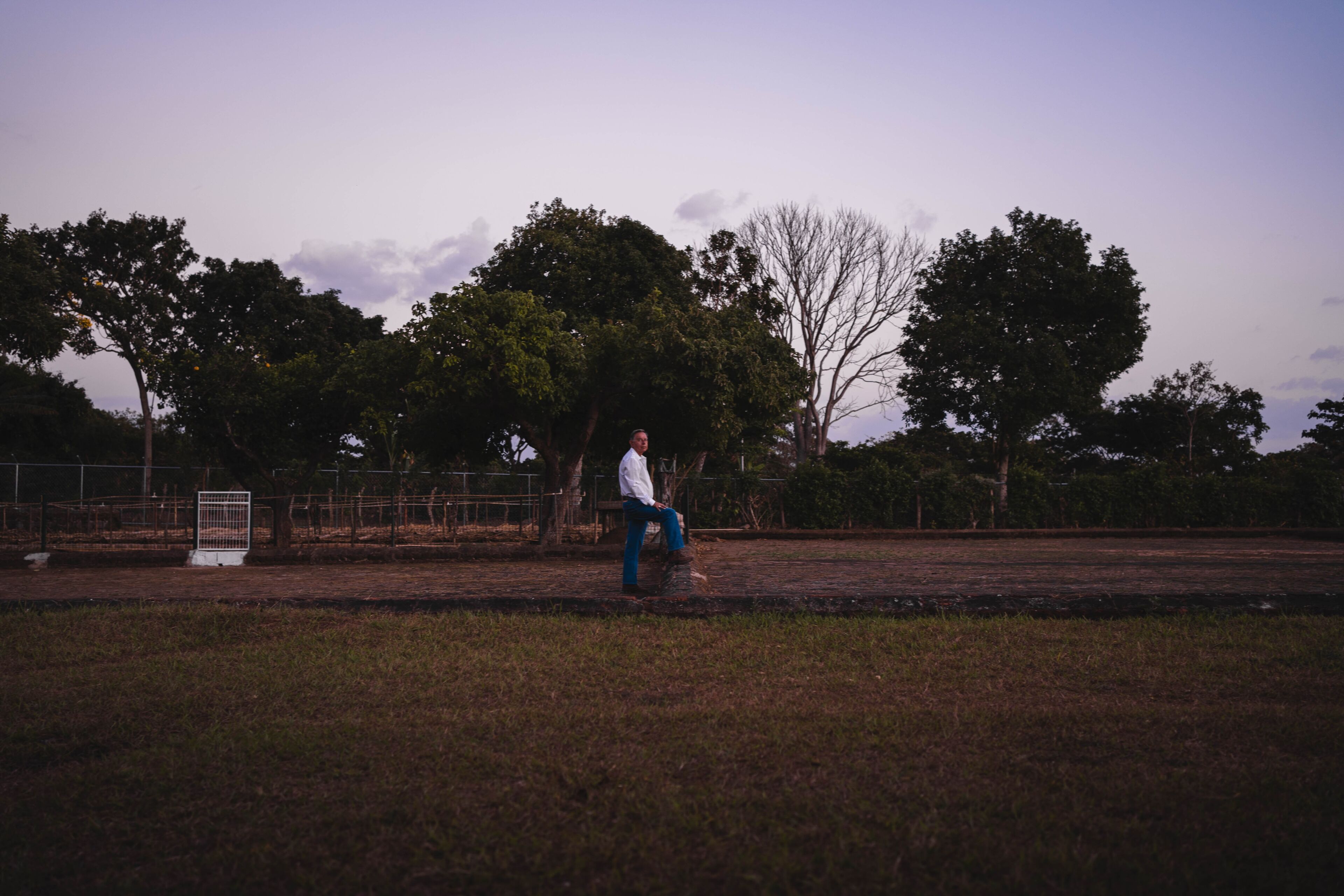
Miguel, Miguel Ángel and Irene at their San Antonio farm, El Salvador
"How we got rid of pesticides" — MAV Coffee, El Salvador
MAV Coffee is a family business based in El Salvador. The father, Miguel Ángel (MAV), and his children Miguel and Irene, look after the Valle de Oro farm, whose coffee we offer. Accompanied by the agronomist Don Julio, they have regenerated the farm and intend to do the same on the family farm, San Antonio.
What is the MAV story with coffee?
IRENE : We are a family based company. My brother Miguel and I are the 5th generations of coffee producers, and that is very important to us. We only recently understood that each generation had a very influential footprint on MAV. These stories, like our family exporting coffee to the Dutch Crown and all we’ve heard as children, are the backbone of who we are today.
MAV : My great-grandfather purchased the San Antonio farm around1895. When he died, my grandfather, who was a banker, took over the farm and started exporting. In the meantime, he became the first president of the Central Bank of San Salvador. Coffee became his secondary business, but the farm remained. My mother took over, and I had to start helping her about 20 years ago.
My brother and sister wanted to sell, but I did not want that. I wanted to preserve the farm, the house, the heritage, and to keep giving employment to the people around us.
The idea behind MAV Coffee is showing that coffee can be sustainable economically, socially, and environmentally. I always believed that coffee can be profitable if we work it in the right manner. This is why we work with Don Julio from Lean Coffee Management, who is an expert when it comes to coffee growing the best way.
IRENE : When the time came to do the transition between the third and the fourth generation, around 2005, the farm wasn’t at its best. It would have made a lot of sense to sell. But my dad fairly believed that he had a social responsibility, not just to the people, but also to nature.San Antonio is a finca that pretty much crosses the entire town, and El Salvador urbanization is growing way too fast.

MAV Coffee - The first generation of coffee farmers
When did you start Valle de Oro and La Pacaya, the 2 other MAV farms?
MIGUEL: It was probably around 2010. At that time, we were visiting other countries to learn how to taste coffee and how to prepare coffee the right way. When we started hearing about geisha from Panama, we decided to try to go find it.
We managed to bring geisha in El Salvador, but we didn't have anywhere to plant it except in San Antonio. It took a couple of months looking for another place, until we found Finca La Pacaya. Pacayas are palm trees. We kept them and used them for shade. It's still only a small portion of the farm that is harvested because we’re having issues with gangs. We’re working on this issue and hope to get it back as soon as possible.
Valle de Oro came later, when we met this man called Don Roberto who had this amazing farm, where everything was very organized. In 2016, Don Roberto wanted to retire, and he wanted to leave his farm in good hands. We took that opportunity to buy it, and it became Valle de Oro.
When and why did you decide to make it the technology-driven farm it is today?
IRENE: From the beginning, everyone here at MAV understands the power of technology. It's a collective understanding that if we use technology the right way, it can be applied and integrated in every aspect for the best. We’re not ashamed to integrate new technologies as crazy as they seem, like drones to check our soils and make sure we take the right decisions.
MIGUEL: It’s about using it to serve nature. I’ve always liked technology and Don Julio is very open-minded. There is a reason his company is called Lean Coffee Management, they want to be as lean, as efficient as possible. Which does not mean everything is done by machine. Harvesting is done better with human hands, for example.
But from the beginning, we wanted to use technology to work more efficiently. It's very sad for me to look at the landscape that I saw growing up as a kid, destroyed for housing or to grow corn.
Flying into the country, you can clearly see where Guatemala ends and where El Salvador starts because of deforestation. The green coverage around the country has been drastically reducing.
This is the reason we take it so seriously, and technology helps us to make all work together, preservation and production. For example, using drones, we examine the soil to detect the need for water or nutrients.

Cupping at MAV Coffee, on the San Antonio farm
How much does it help, for example, with soil management?
MIGUEL: It helps us manage the amount of work needed, where it’s needed. It’s a considerable reduction in costs. But it’s also been amazing seeing local fauna sprout out. Don Julio and I recently found a type of legume that is indigenous to the area. Seeing that starting to reappear really shows us we're going in the right way.
Letting the natural vegetation develop and flourish was a great thing to observe. Usually, people use herbicides because they think vegetation is bad. They also use fertilizers, but that also goes to vegetation. It makes no sense. Technology helps us working on a better balance between coffee and vegetation. And it's also what insects eat. Why are they going to eat coffee trees if they have what they should naturally eat? This way also allows us to get rid of pesticides, and all for better coffees, whether washed or natural.

Miguel Angel (MAV) at his San Antonio farm, undergoing regeneration
Is it a vision that MAV shares with other producers in your region?
IRENE : Whenever we talk about it, we talk about how it's helped us regenerate our ecosystem, how it's helped us reduce pesticides to 0, and how the reduced use of herbicides keeps naturally the bugs away from our coffee trees.
It’s hard to change minds. But the best way of doing it is through application. Apart from the benefits that it has for the land and the farm, it's very important to also talk about the social impact that it has on the people, working differently and away from products bad for their health.
MIGUEL : We’re starting this journey of doing the same thing we did in Valle de Oro in San Antonio. We have tested the soil to check how much pesticides were in it. It was not the expected results. But I think it's a very nice project to show people and other producers, not only in El Salvador, that regenerating a farm is possible.
Between keeping the heritage and going ahead in coffee production thanks to technology, what are you the most proud of?
IRENE : It's seeing a dream come true. Being able to take people from other parts of the world and bringing them to Finca San Antonio and all our farms through coffee. It’s also seeing Don Julio, my father and my brother interacting, listening to our story and keeping it alive. It goes beyond expectations.
MIGUEL : We've regenerated Valle de Oro, so knowing that we're on the right path to recovering the historic land and the family farm at San Antonio makes me very proud.
MAV : I’m proud all of this is not all about money. It's about preserving the nature, preserving the heritage and giving the people a place to work. It also makes me immensely proud, seeing Irene and Miguel this much motivated about MAV projects. This story has no price!
Did you like this article? Share it with your community:
